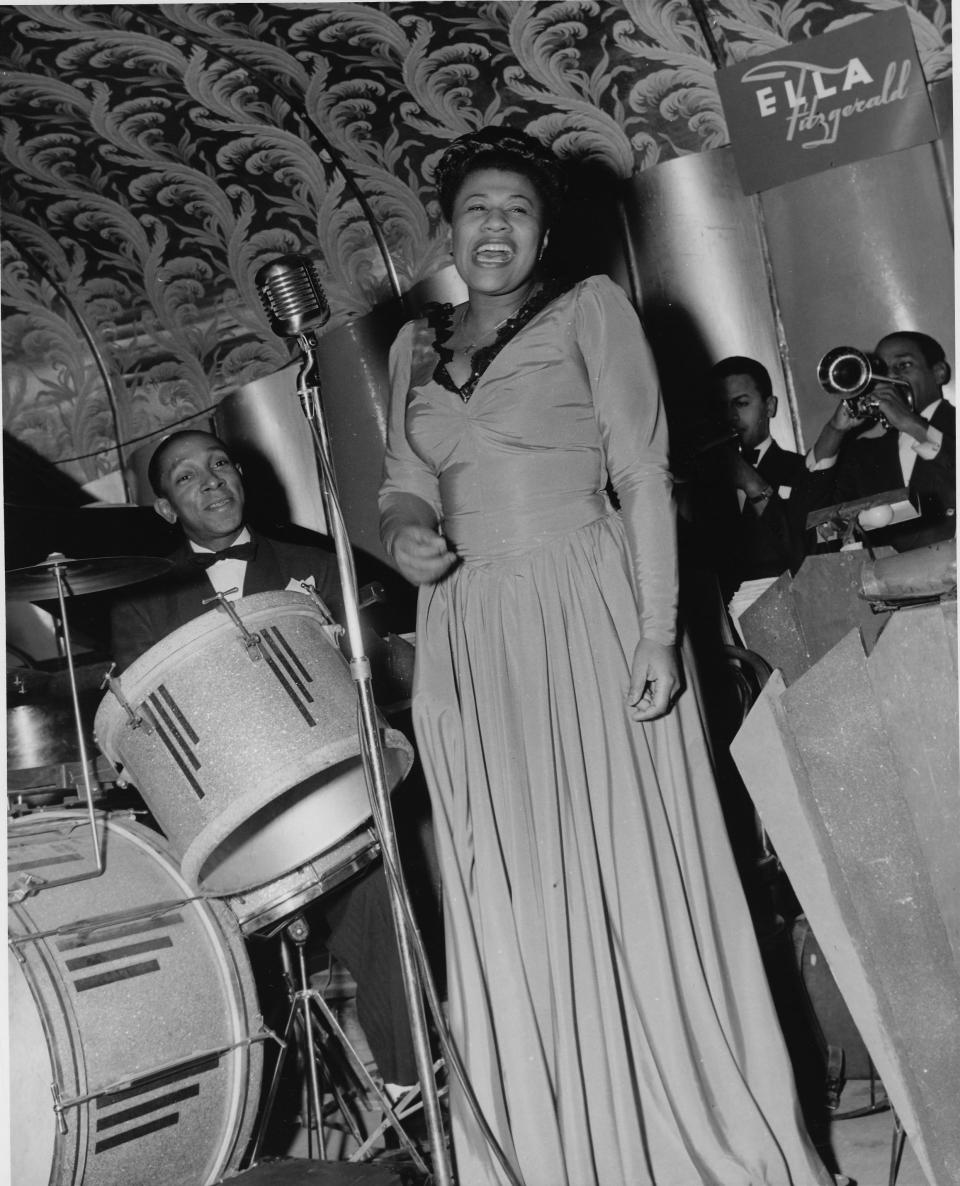Ella Fitzgerald made a powerful statement on racism in 1963 – but no one heard it
In 1963, at the height of the civil rights movement, Ella Fitzgerald sat down for an interview with her friend Fred Robbins, a popular New York radio host.
Fitzgerald, a legendary Black jazz singer, was coming off a series of international concert tours and the success of her 1960 live album "Ella in Berlin: Mack the Knife," which went on to sell more than 1 million copies and win two Grammy Awards, including best female vocal performance.
After being embraced by overseas audiences, Fitzgerald returned home to the U.S. and was reminded of the prevalent racism she and other Black musicians encountered in the South. In 1955, for instance, she was arrested in her dressing room at an integrated show in Houston. When she arrived at the police station, an officer asked for her autograph, Fitzgerald recalls.

She candidly voiced her frustrations to Robbins in an interview that he promised would air "all over the world."
For reasons unknown, the interview was never broadcast. But snippets of their conversation can be heard for the first time in the new documentary "Ella Fitzgerald: Just One of Those Things" (available to rent in virtual cinemas).
Fitzgerald begins by telling Robbins that she can't play shows in Southern states, which would be legally desegregated in 1964 when President Lyndon B. Johnson signed the Civil Rights Act.
George Floyd's death: How hip hop is responding
So you want to learn about racism in America? Stream these 20 compelling movies and TV shows
"Maybe I'm stepping out (of line), but I have to say it, because it's in my heart," Fitzgerald says. "It makes you feel so bad to think we can't go down through certain parts of the South and give a concert like we do overseas, and have everybody just come to hear the music and enjoy the music because of the prejudice thing that's going on.
"I used to always clam up because you (hear people) say, 'Oh, gee, show people should stay out of politics.' But we have traveled so much and been embarrassed so much. (Fans) can't understand why you don't play in Alabama, or (ask), 'Why can't you have a concert? Music is music.' "

She concludes that while it's difficult to change the hearts and minds of "die-hard" racists, she has hope that future generations will be more tolerant.
"The die-hards, they're just going to die hard. They're not going to give in," Fitzgerald says. "You've got to try and convince the younger ones, they're the ones who've got to make the future and those are the ones we've got to worry about. Not those die-hards."
It was a rare political statement from Fitzgerald, who asks whether the interview will be broadcast in the South.
"I really ran my mouth," Fitzgerald says. "Is it going down South? You think they're going to break my records up when they hear it? This is unusual for me but I'm so happy that you had me, because instead of singing for a change, I got a chance to get a few things off my chest. I'm just a human being."
"Just One of Those Things" is a comprehensive look at Fitzgerald's life and career, from being discovered as a homeless teen in New York at 16, to her death from a stroke in 1996 at 79.
The documentary features interviews with some of her close friends and famous fans, including Tony Bennett, Smokey Robinson and Patti Austin, who recalls how Marilyn Monroe helped Fitzgerald book shows at white-owned venues in the 1950s.
"Marilyn Monroe loved Ella Fitzgerald, and said, 'Whatever you need and however I can help you, I am going to do that,'" Austin says. "And she went to the owner of a club and said, 'If you don't open these doors to everybody, I'll make sure nobody shows up.' And she showed up every night, and half the reason everybody showed up was because Marilyn was sitting in the front row going, 'Yo, Ella!'"
"I owe Marilyn Monroe a real debt," Fitzgerald later said. "After that, I never had to play a small jazz club again."
Staying Apart, Together: History has its eyes on us
George Floyd's death: 100 ways you can take action against racism right now
This article originally appeared on USA TODAY: Ella Fitzgerald made rare comment on racism in 1963, new film reveals